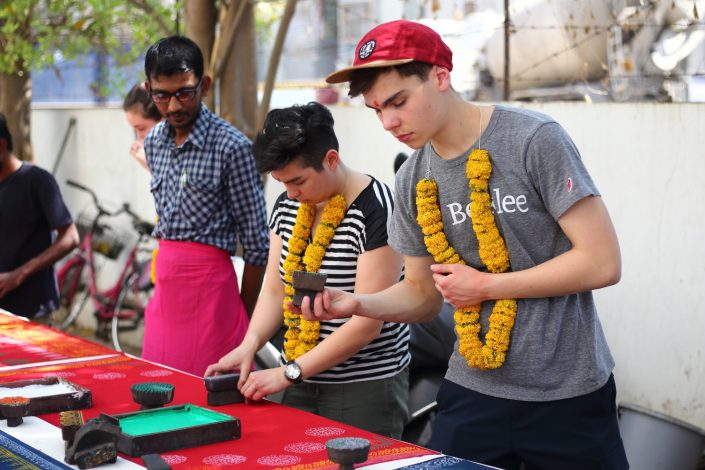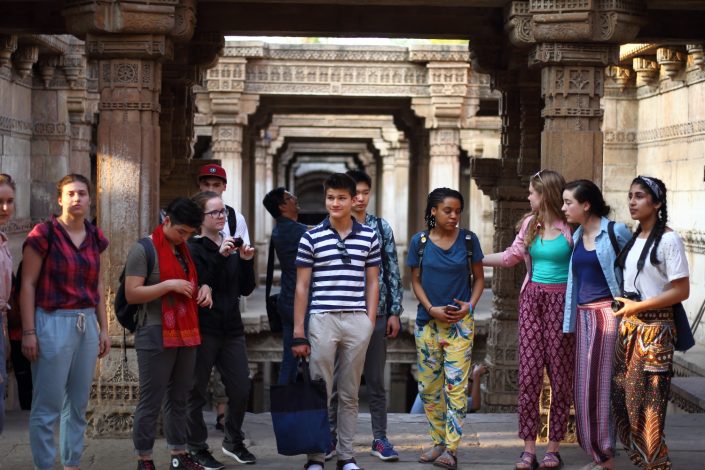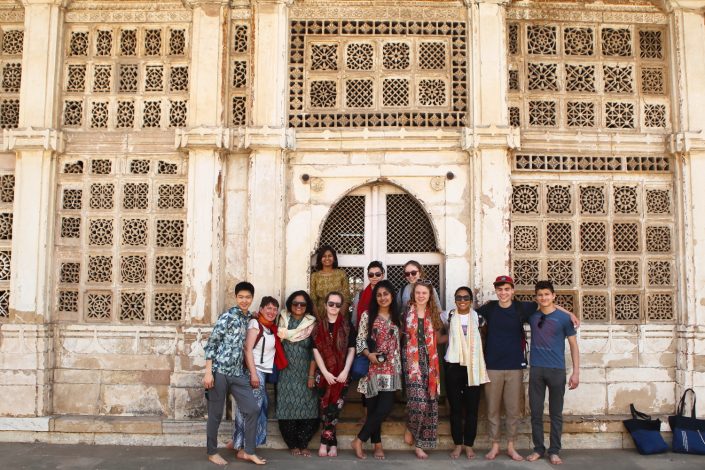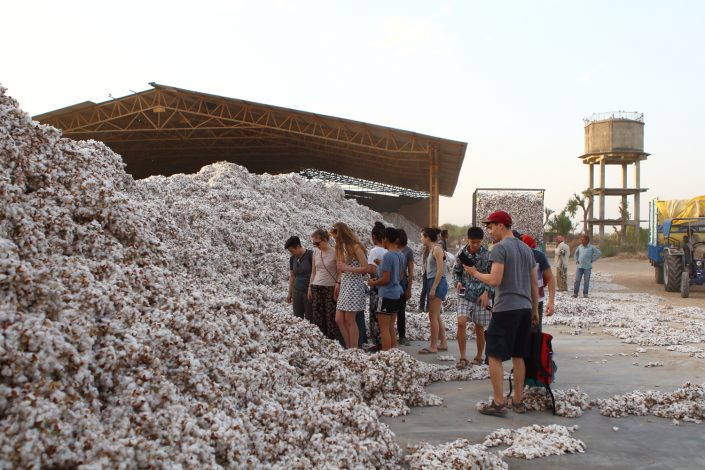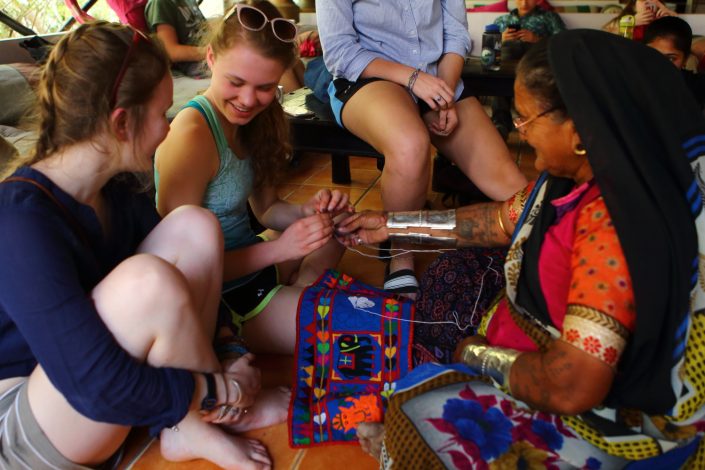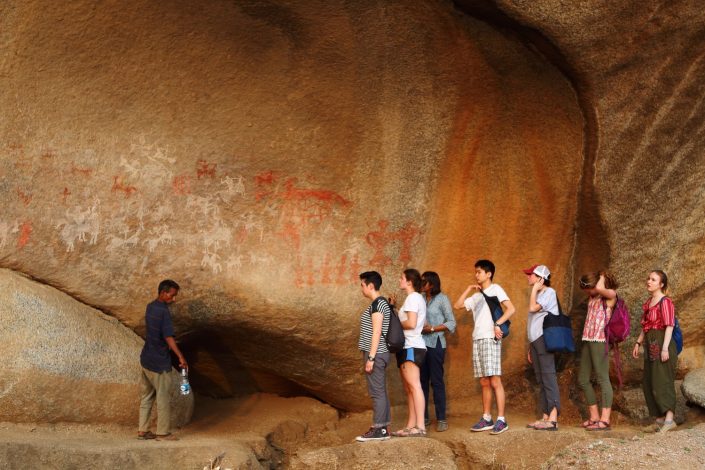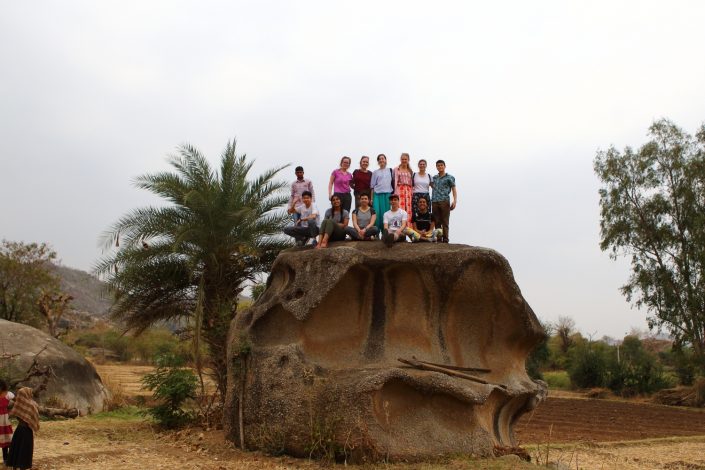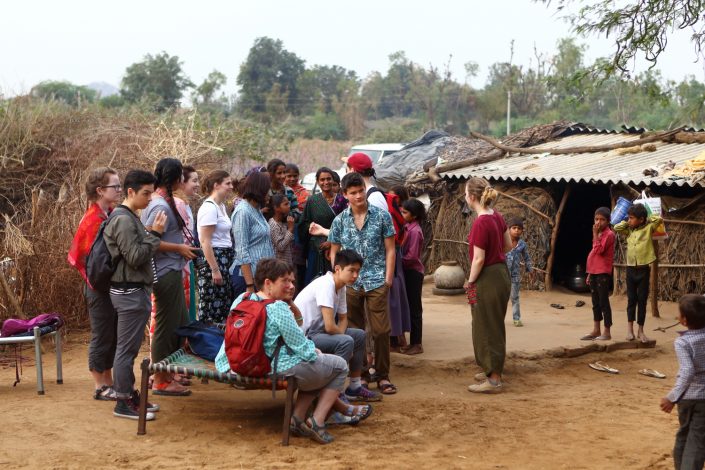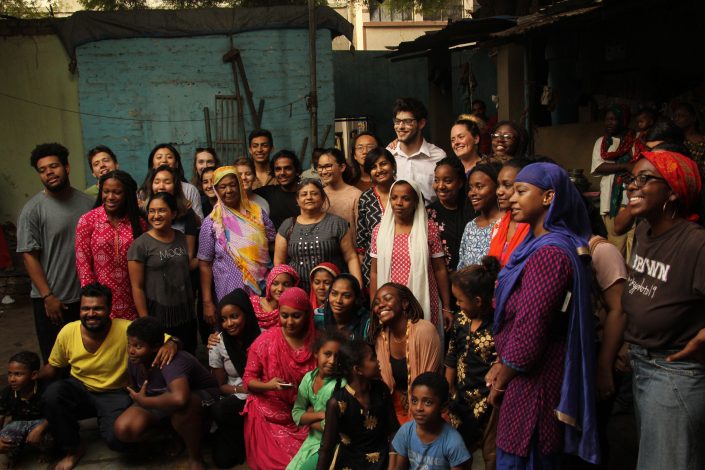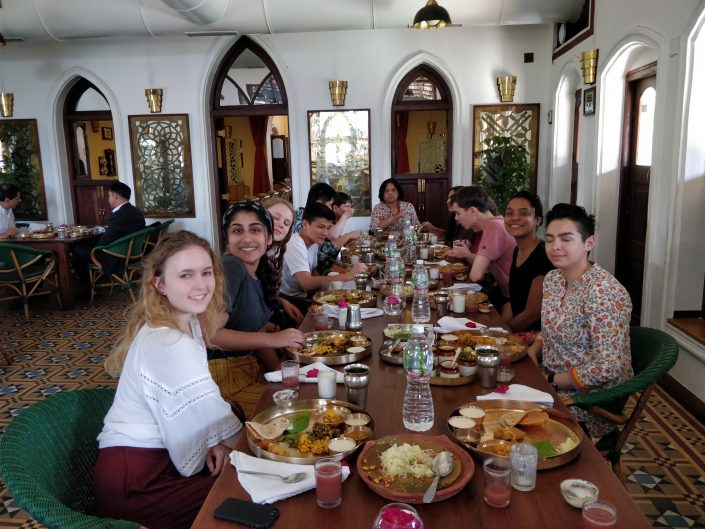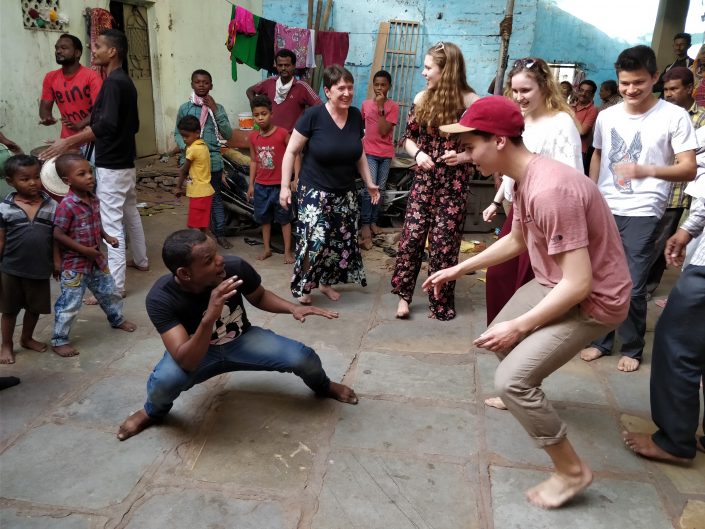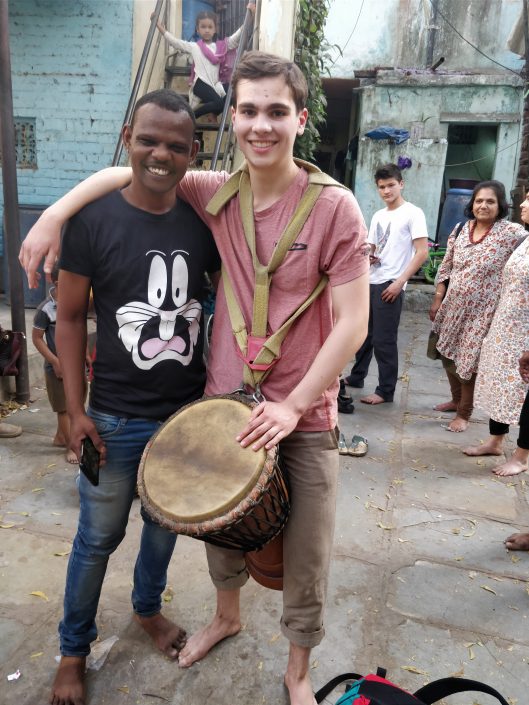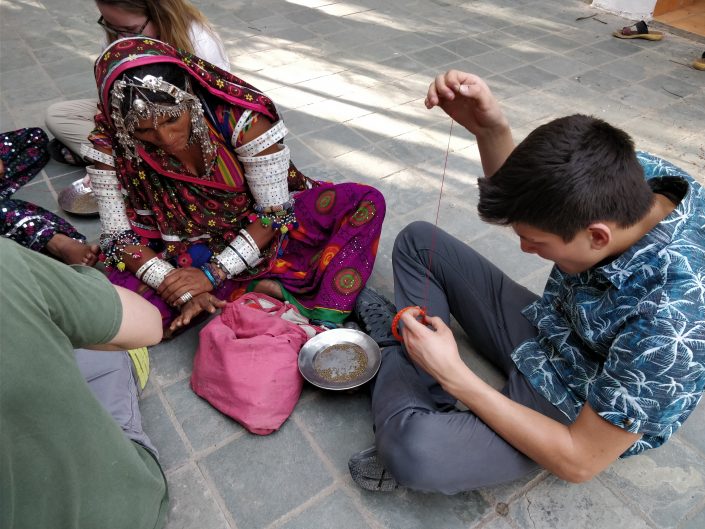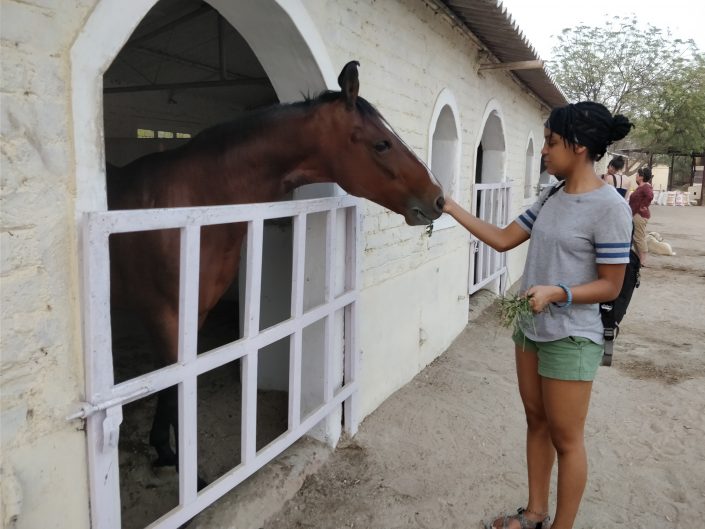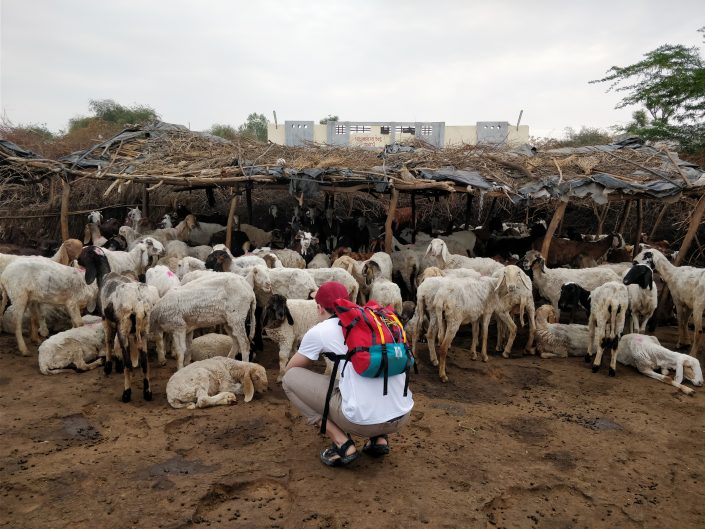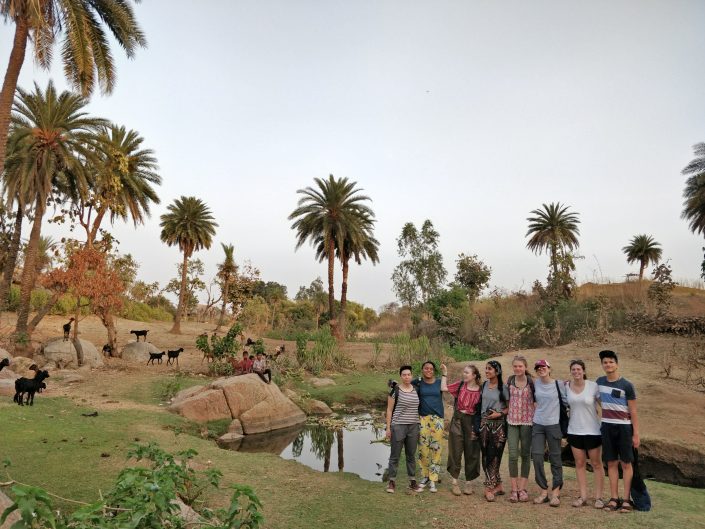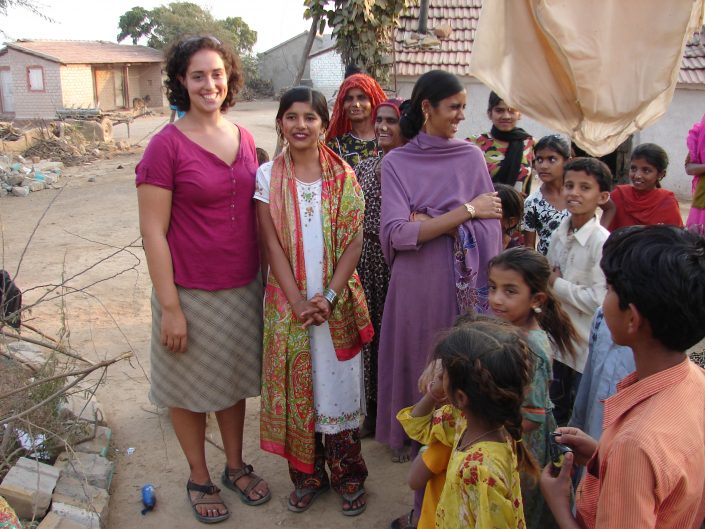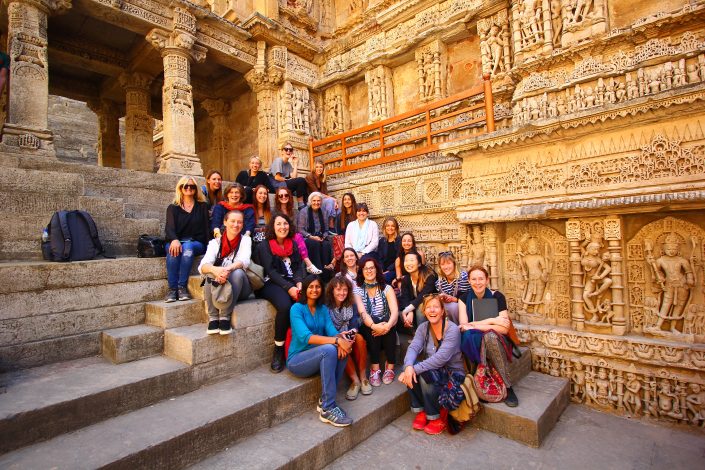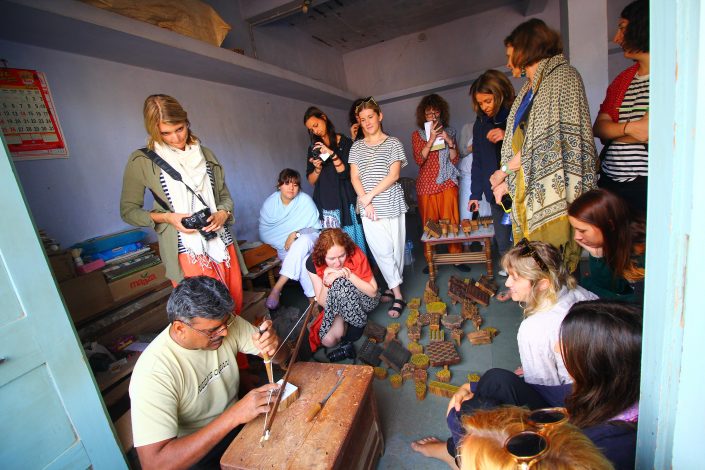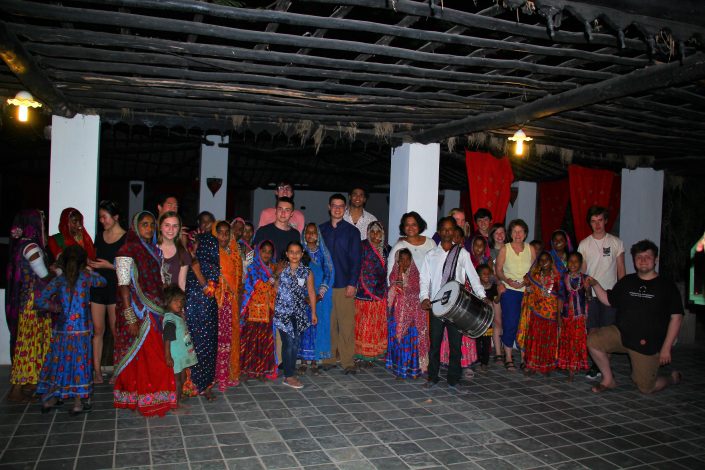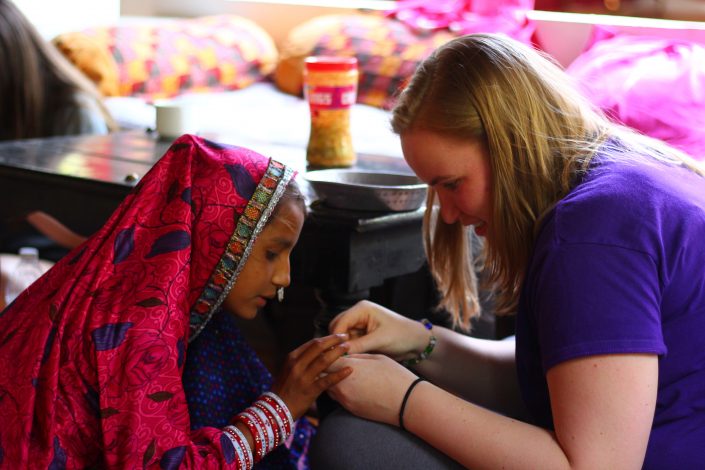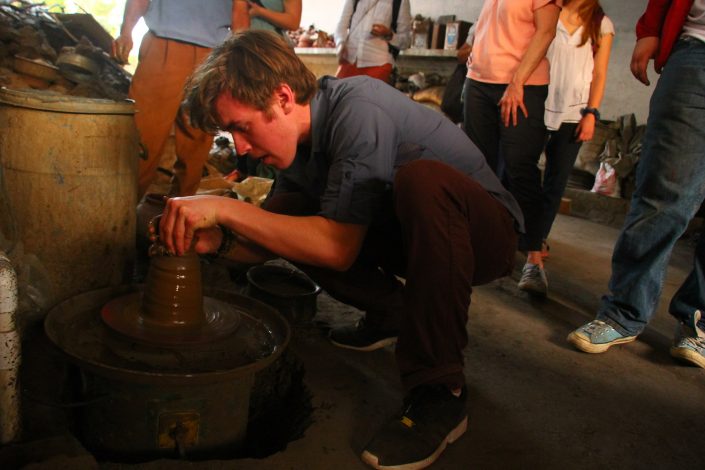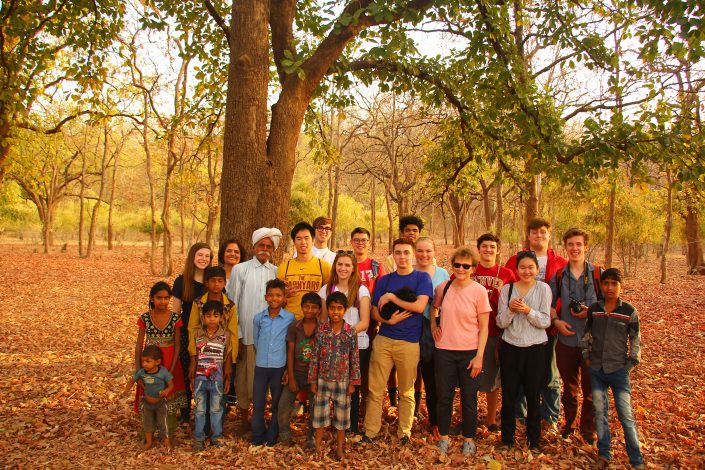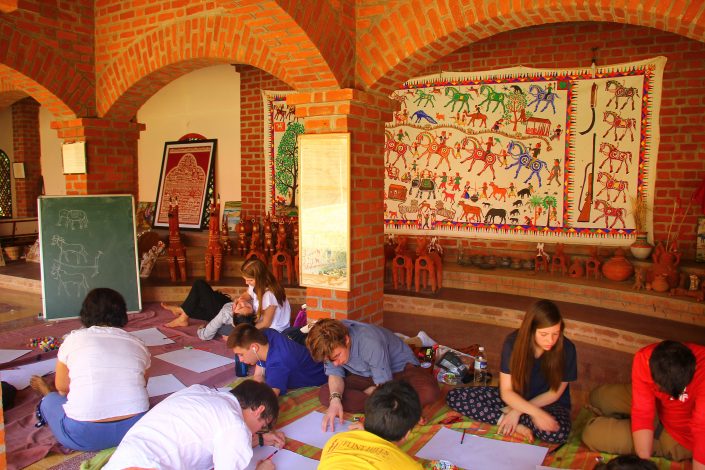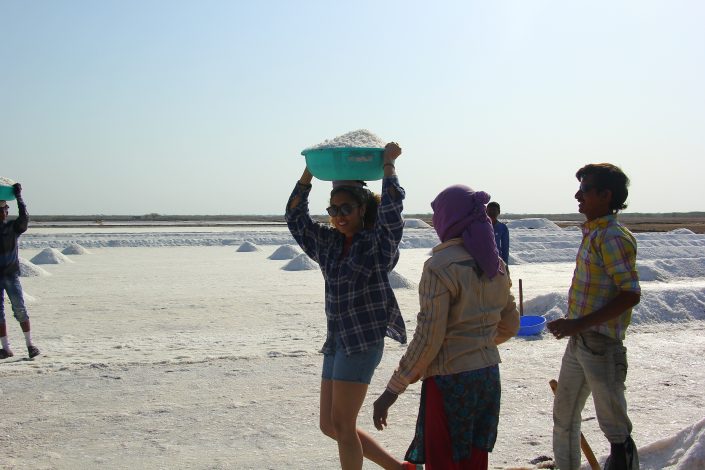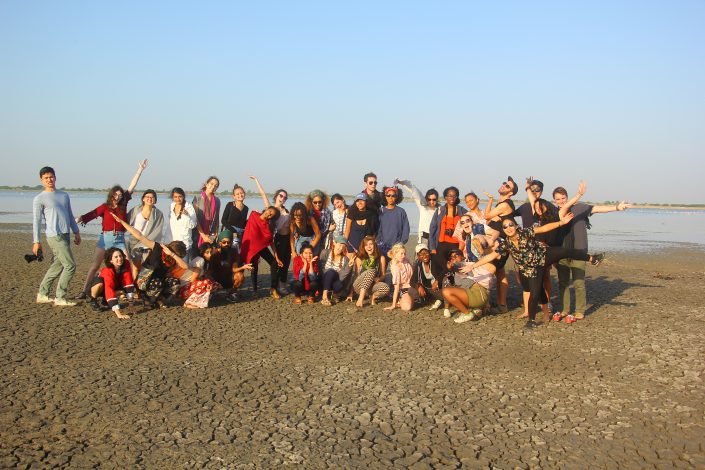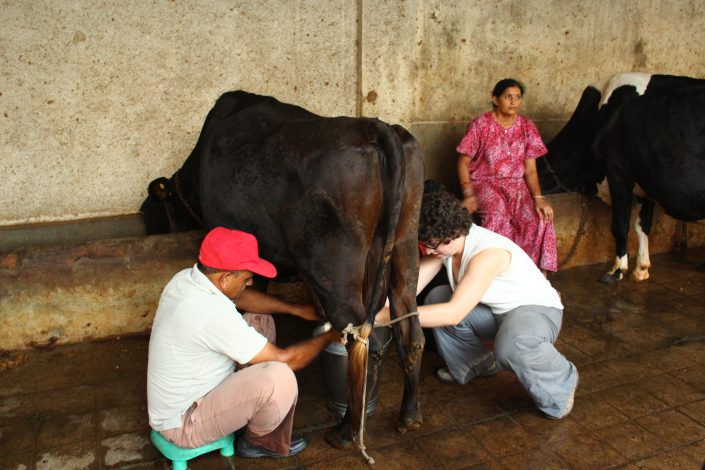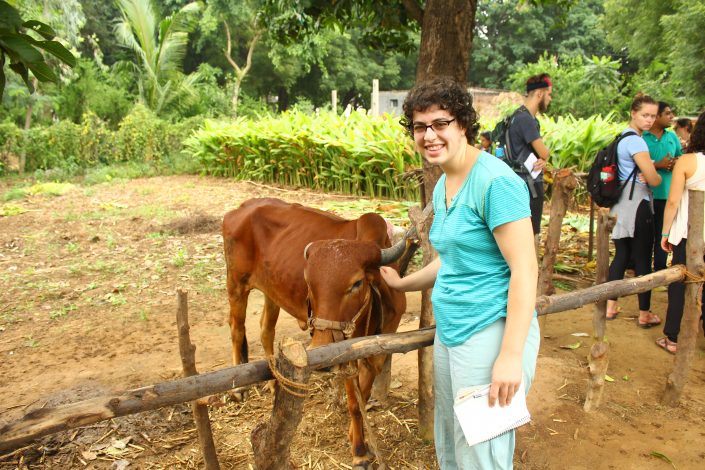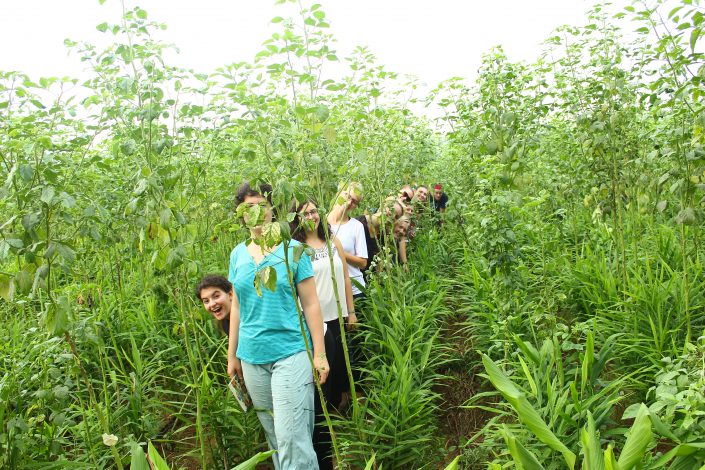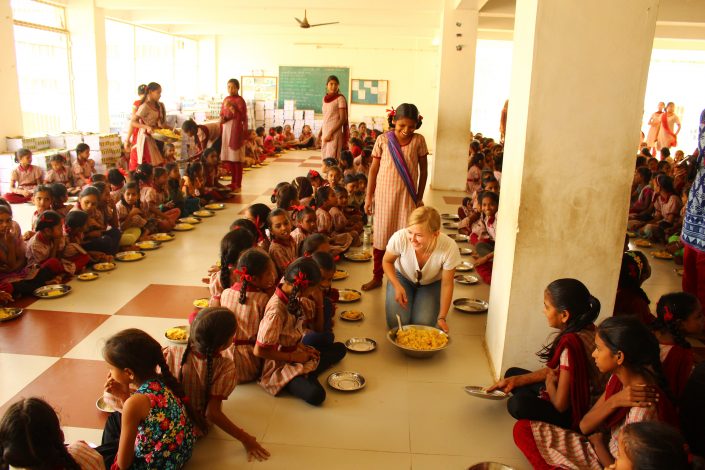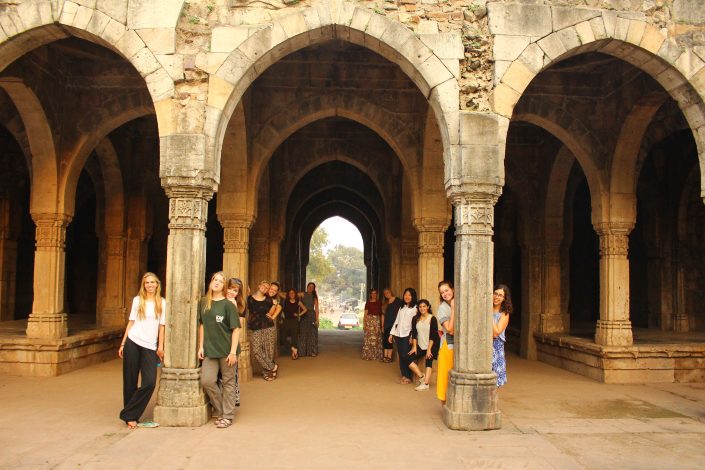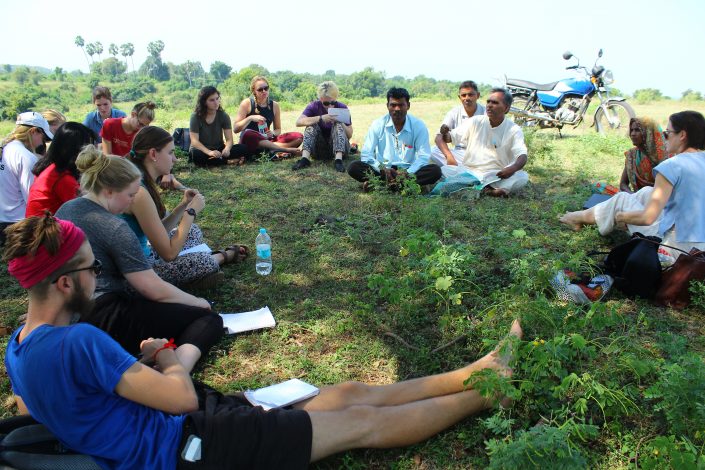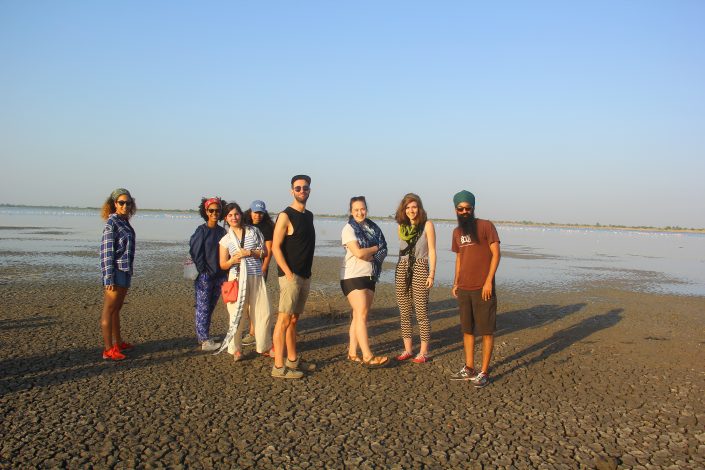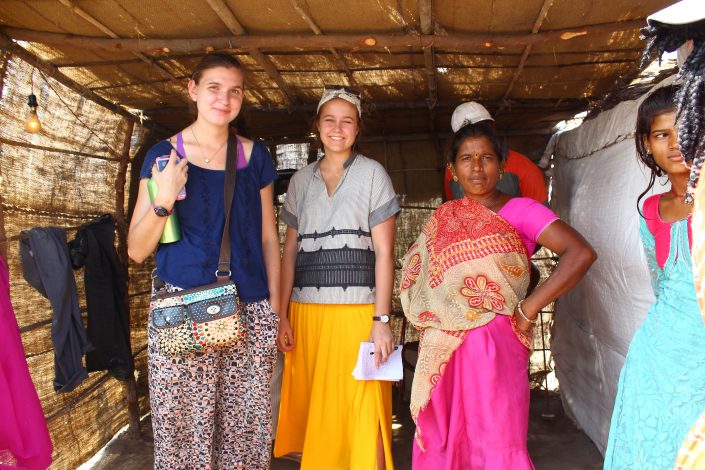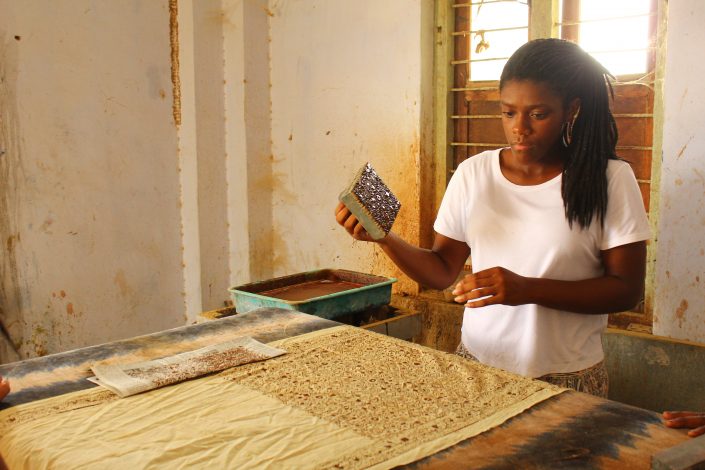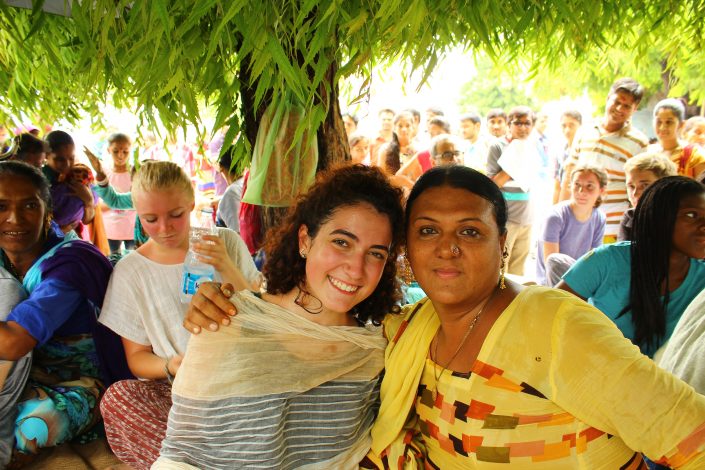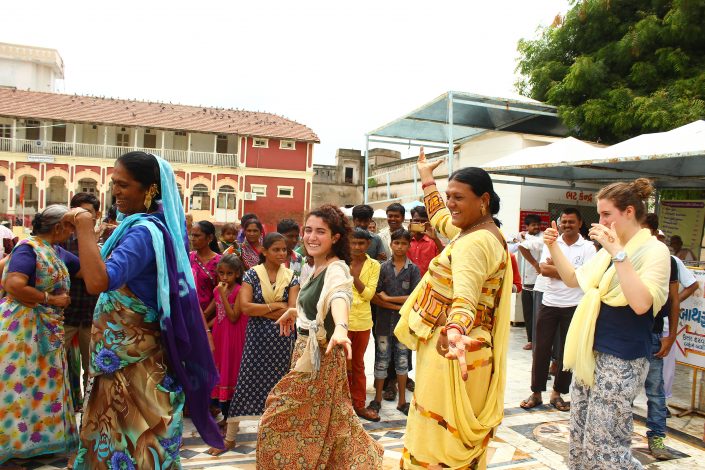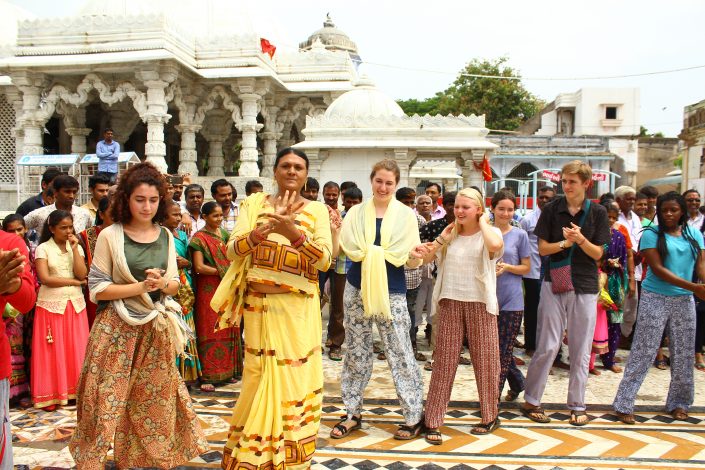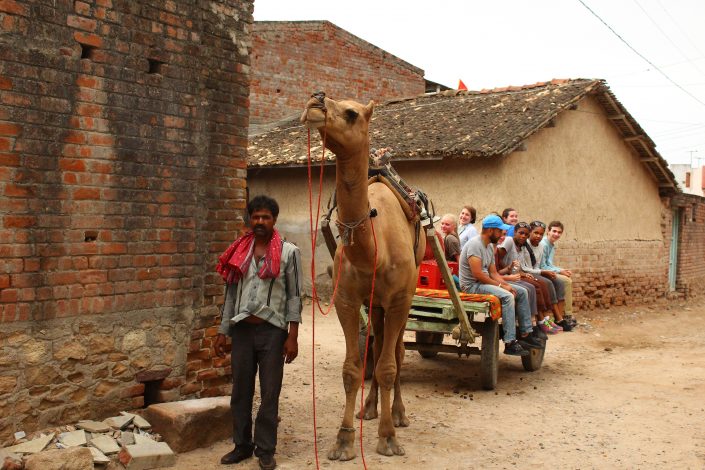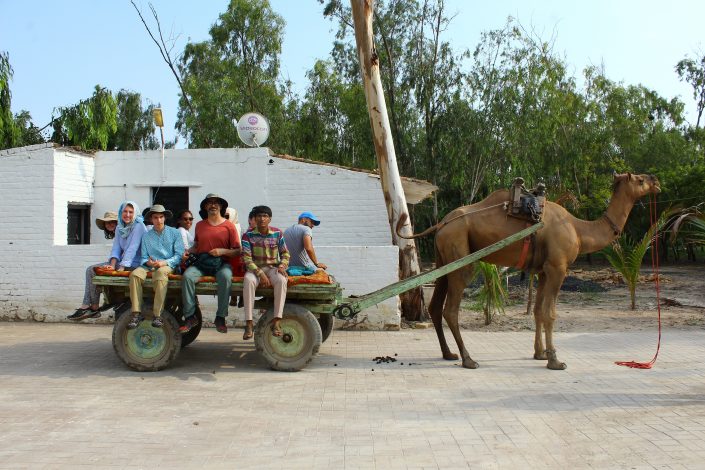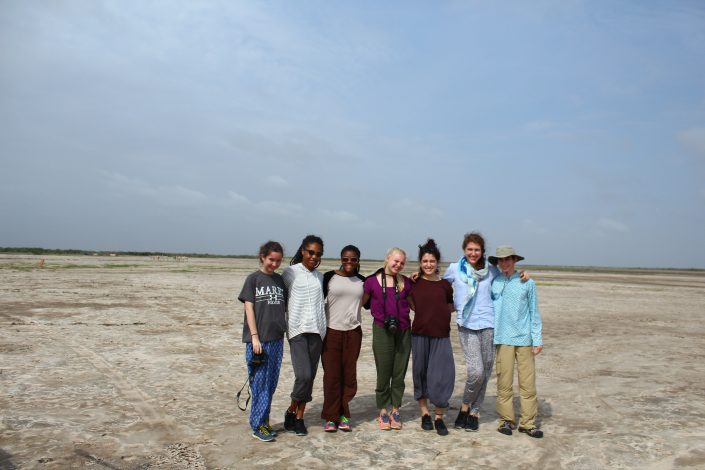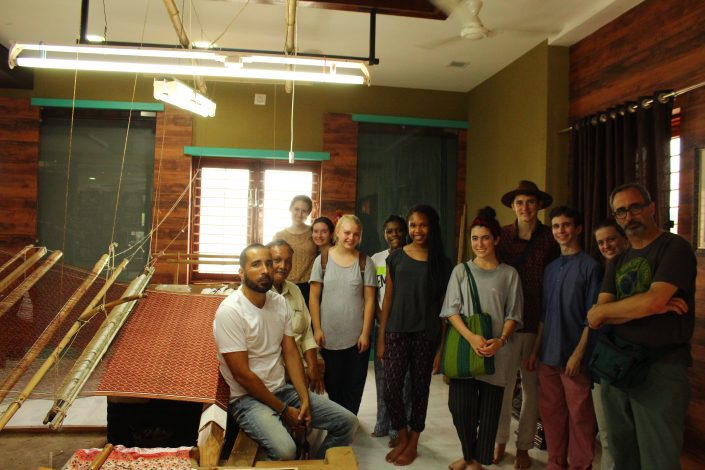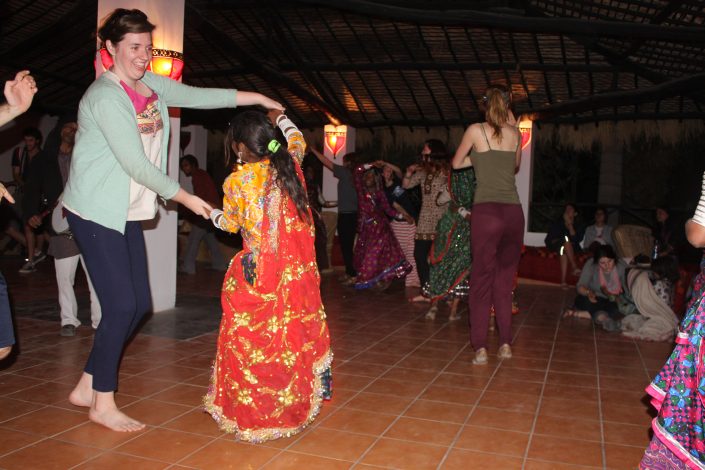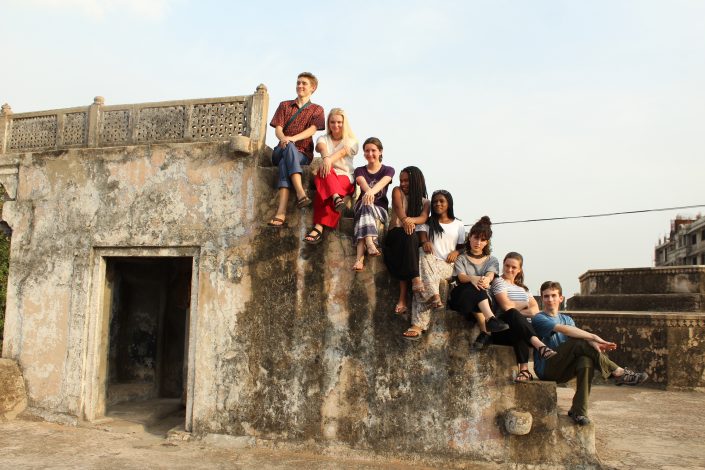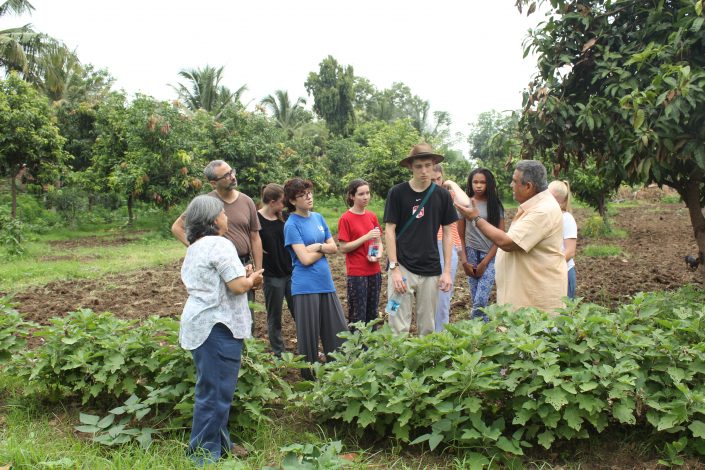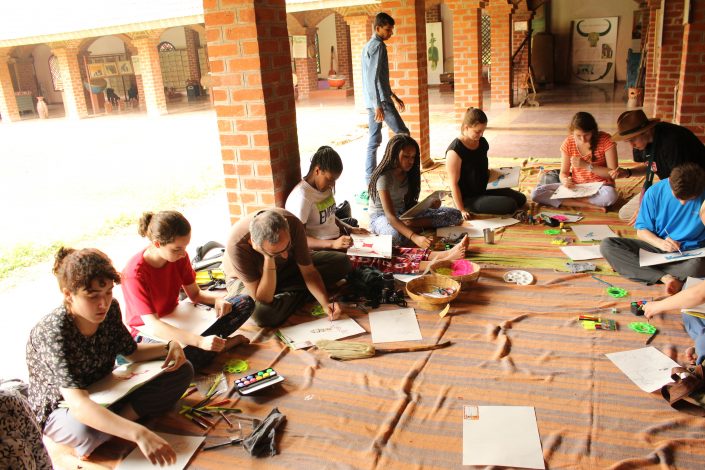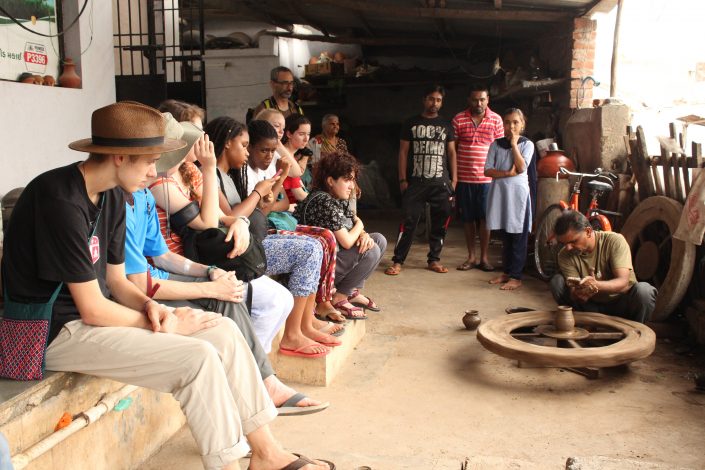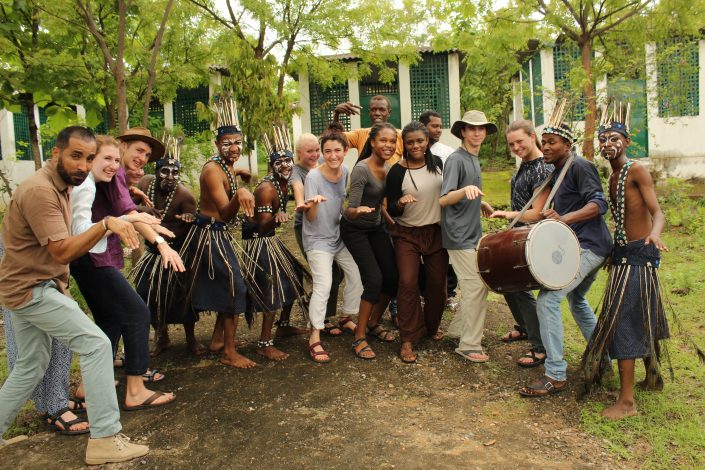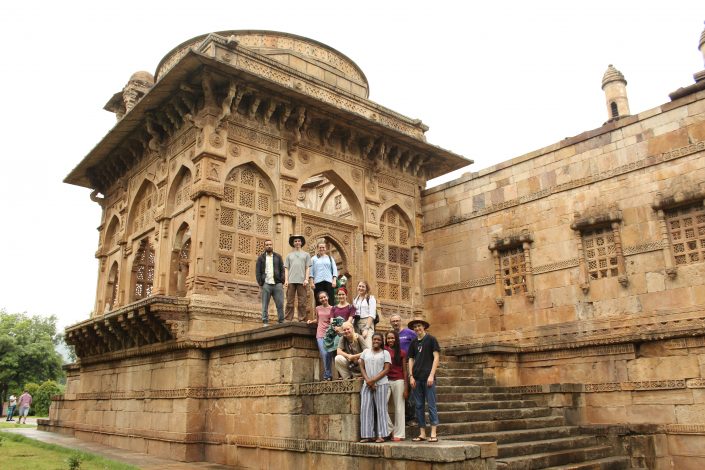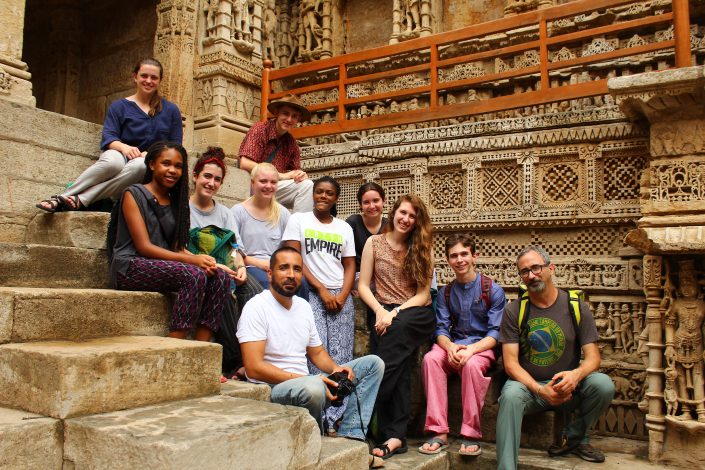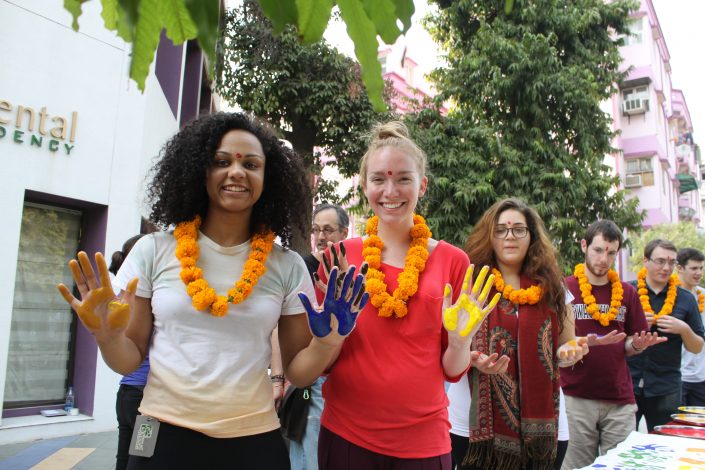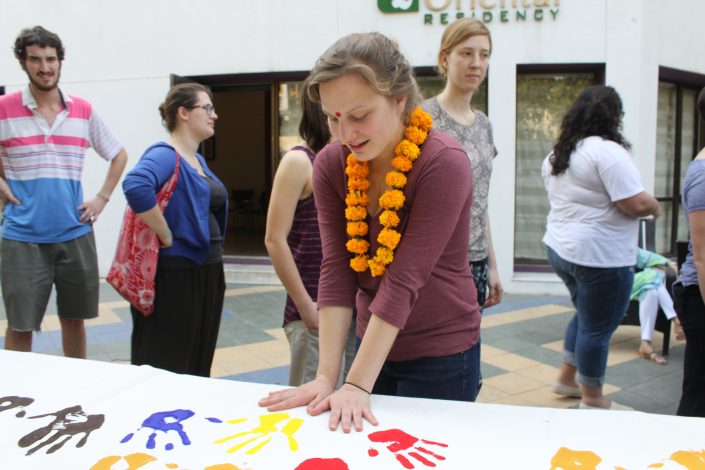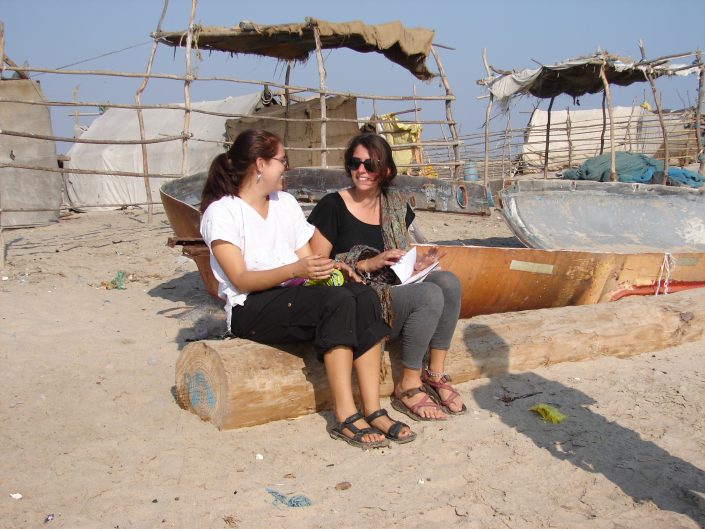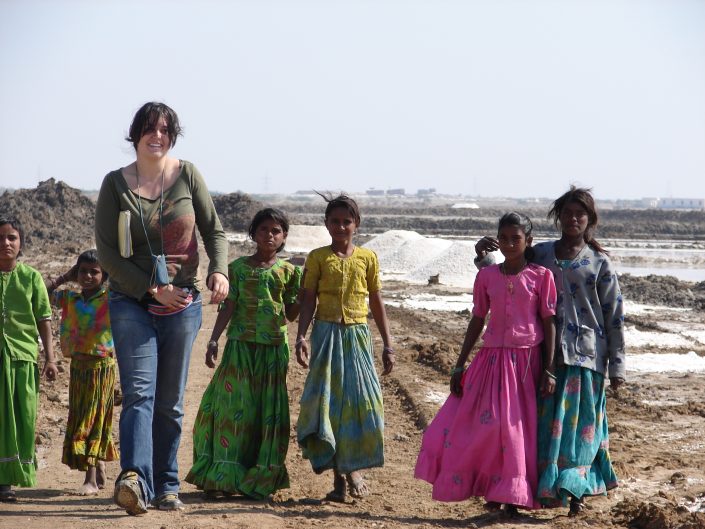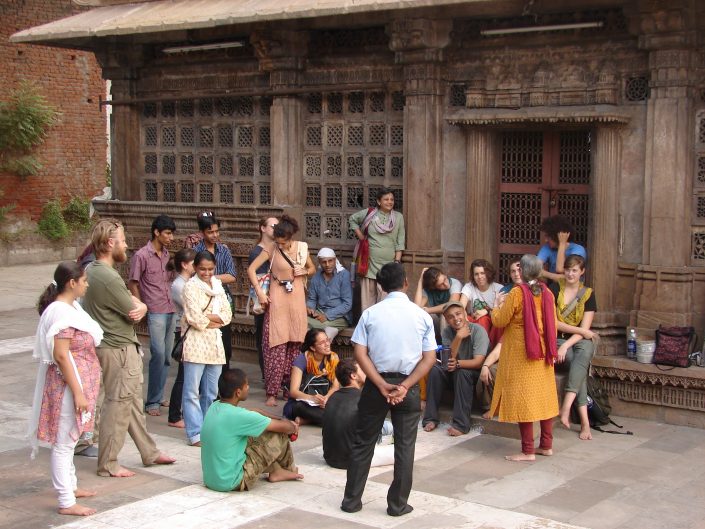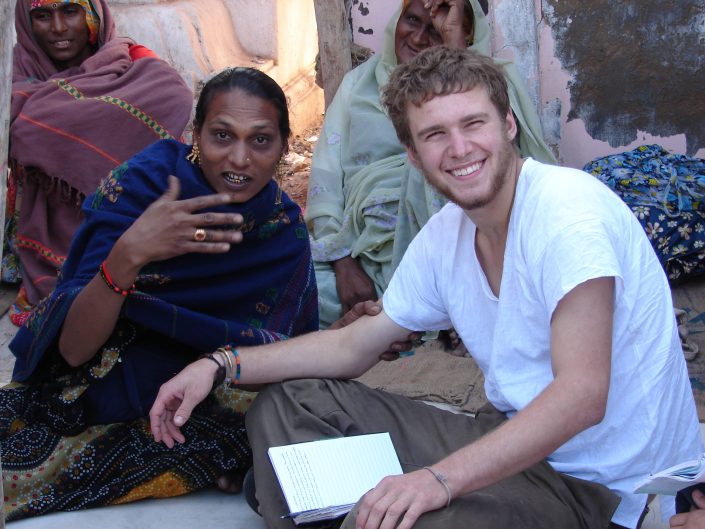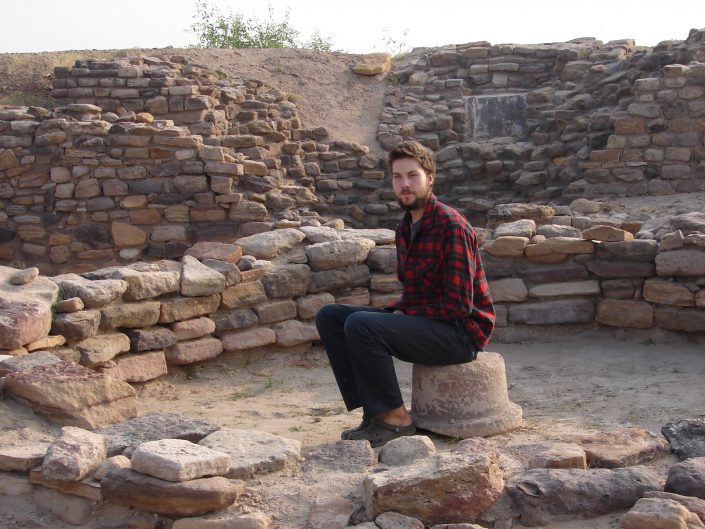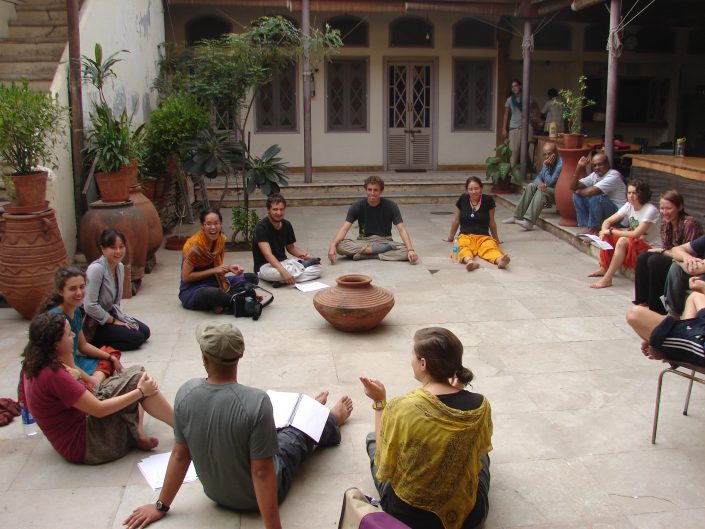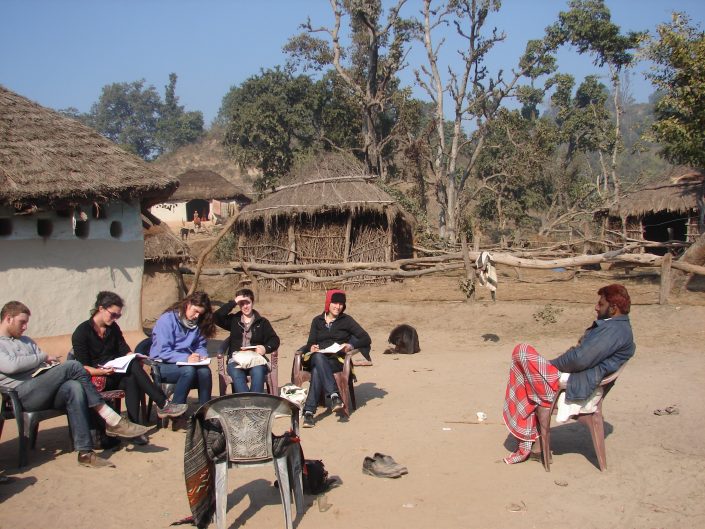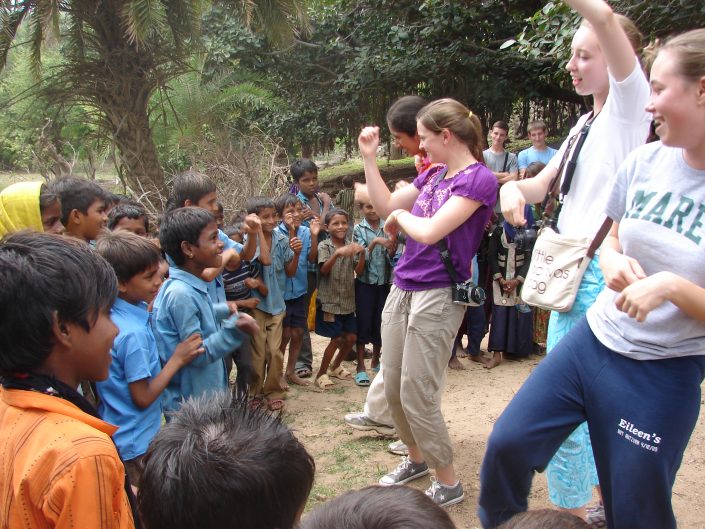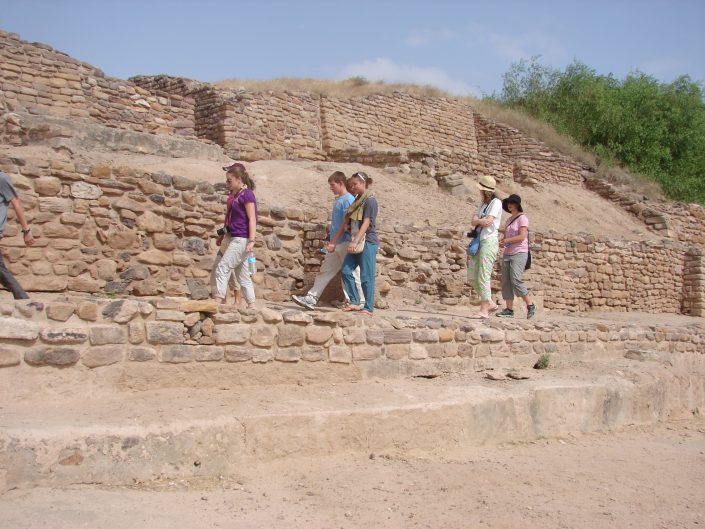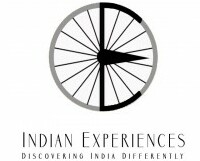Experiential and Experimental Learning and International Living: Study Abroad in India
The continuity, diversity and complexity of a civilization process evolving for more than 5000 years can be experienced in the most routine and mundane life of contemporary India. The uniqueness of experiential learning in India is located in first-hand learning from this diverse and breath taking interplay of its traditions, culture and ecologies. The daily practices and routine activities of ordinary people here reflect historically acquired knowledge of assimilation, adaptability and spirituality of individuals and communities interwoven in symbiotic relations between the human and the natural. Our programs act as a catalyst of a humbling, enlightening and life changing experiences. These programs enable students to become active in transformative processes for social and ecological justice.
India gives an opportunity to explore its enthralling diversity of culture, a vibrant history & traditions, multiple hues of natural beauty and ecological diversity, its travesty with Global dynamics, its burgeoning local economy, enterprising industrial developmental models and much more.
What We Offer
We offer experiential learning opportunities for exploring India through her complex realities and contemporary challenges using critical and experimental pedagogy.
We design community based, cultural immersion programs and customized learning processes outside the conventional academic settings for every age group of students: High School, Undergraduate and Graduate.
We encourage the learners to engage in critical and analytical process of exploring dynamic relation between theory and practice regarding key Global issues and learn from people’s struggles for building just and humane societies in becoming active change makers.
Our Philosophy and Approach: Be the change that you want to see
Our approach is interdisciplinary, interactive, comparative and field-based.
We emphasize on experiential and culturally immersive processes to gain first-hand knowledge about people, place and practices.
We offer hand-on and workshop based intensive fieldwork exercises catalyzed by experienced facilitators and acclaimed subject specialists.
We constantly encourage students in critically refocusing theoretical understanding using field research and life experiences gained in the process.
We engage students in a process of creative and reflective knowledge creation to inculcate the spirit of becoming change makers for global justice and sustainable future.
We facilitate students to connect with a wide range of networks of action researchers, academicians, intellectuals and activists to enable them to become a community of learners.
Our Programmes
Art, Architecture and Archeology as Dialectics of Urbanization and Urban history
Civilizational history of more than 5000 years and its continuity till the date offers a unique experience to learn from built spaces and anthropogenic creations of societies and people of this ancient civilization. The program takes you from the 5000 years old Citadel City ruins of Indus Valley at Dholavira to the Smart Cities of Post Globalization era and to the UNESCO Heritage city of Ahmedabad. This program offers an opportunity to trace and explore some of the renowned archeological and architectural sites of ancient and contemporary urban heritage located in India. They also offer an opportunity to learn about contentions and conflicts of ecological, political, social, religious and cultural processes over historical timeline.
Observe diverse and challenging realities; Learn from the daily struggles and life changing experiences, Interact with actors of transformative processes. Explore vast and vivid ecosystems and nature’s treasure; understand the dynamics of Global context and local challenges, work with people’s movements for social and environmental justice for sustainable future.
Communities and Traditions: Diversity, Pluralism and Syncretism
Learn about identities, knowledge systems, practices, and values which have sustained the social processes for many thousand years.
India is a home for numerous indigenous communities and peoples practicing diverse social and cultural lifestyles evolved over centuries. The lives and livelihoods of these communities reflect a unique interdependence between human society and the ecological conditions. Their practices indicate sustainable adaptation of diverse climatic and geological conditions across this vast continent. The program, through cultural immersion and community living, enables one to learn from the traditional values, plurality of practices, multicultural traditions and knowledge systems of these people as practiced in their daily lives. It helps to understand the family norms and social structure as pillars of continuity and sustainability through ages.
Colonization, Globalization, and Imperialism: Discontents and Resistance
Indian subcontinent has experienced thousands of years of dynamic processes of migrations and cultural exchanges at Global scale. The region has been home to people from Central Asian nomadic pastoralists to African tribes as well as for orthodox Jewish communities to largest varieties of Islamic communities. The region has experienced 200 years of European colonial subjugation and a uniquely non-violent people’s resistance for independence. Contemporary phase of Economic Globalization has once again renewed people’s resistance movements for democratic and sustainable future. This program offers first-hand experience to learn about some of the social movements and people’s organizations for social and environmental justice in India and interact with key actors shaping processes of social transformation and political vision.
River Cultures of India
Indian cities symbolize continuity, diversity and complexity of a civilizational process evolving over more than 5000 years. The mighty and holy rivers flowing from Himalayas to Indian Ocean have shaped the identity and history of many Indian cities. A dynamic interplay of contemporary and ancient ways of the world can be experienced in the most routine and mundane life here. This program journeys to four ancient cities located on rivers banks of India to explore and learn about how rivers have influenced the cultural, spiritual and religious practices as reflected in daily lives of people for centuries. Participating in various traditional rituals, interacting with various stakeholders on socio-political issues and talking to environmental activists on ecological balance and developmental issues are the focal points here. Enjoy the city walks, visit the grand monuments on river banks and the archeological sites of ancient Indus valley civilization.
Ecology, Agriculture and Sustainable practices
Like all ancient societies, India was a largely agrarian society; it remains so even today. The people of this region have developed agrarian systems and primary food production economies over a long passage of time. Cultures and societies reflect a symbiotic relation to ecological and geo-climatic aspects of the region they inhabit. Resilient and sustainable lifestyles, practices of production and consumption evolve. This program offers immersion based experiential learning located in a specific bioregional and agro-climatic zone. You will explore the interrelationship between ecological, agricultural and sustainable life practices of communities living in a dynamic and delicate human-nature as well as space-time continuum. Meet social actors and talk about modern initiatives of sustainable development by government and non-governmental organizations. Experience local food culture and learn to prepare fresh and organically grown food. Visit village cooperatives and nomadic pastoral communities to learn about the traditional knowledge systems and impact of contemporary changes on their lives.
Blogs and Reviews for our past programs


